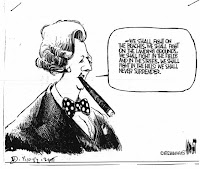Wednesday, June 23, 2010
Can a fugitive ACCUSED post bail through his lawyer/representative?
Tuesday, February 9, 2010
Warrantless Arrest
When a crime has just been committed, the accused is usually arrested without warrant. It is called warrantless arrest. If the offense committed has a penalty of at least 4 years, 2 months and 1 day, (e.g. murder, rape, etc.) a complaint or information may be filed by a prosecutor without need of preliminary investigation provided an inquest has been conducted in accordance with existing Rules. (sec. 7, Rules of Court)
An inquest is "a summary inquiry conducted by a prosecutor for the purpose of determining whether the warrantless arrest of a person was based on probable cause."
While a preliminary investigation is a proceeding distinct from an inquest. A preliminary investigation is "an inquiry or proceeding to determine whether there is sufficient ground to engender a well-founded belief that a crime has been committed and the respondent is probably guilty thereof, and should be held for trial." (IMELDA S. ENRIQUEZ vs. JUDGE OLEGARIO R. SARMIENTO, JR. , A.M. No. RTJ-06-2011,
Thursday, June 18, 2009
Kinds of Evidence

In ascertaining the truth in a judicial proceeding, evidence is generally classified into 3 kinds:
1. Real Evidence – it refers to the thing or corporate object which can be viewed or inspected by the court.
2. Circumstantial Evidence – it indirectly proves a fact in issue based on various
attendant circumstances.
3. Testimonial Evidence – it refers to oral evidence or that which a witness testify
in court. It includes written evidence, such as documentary evidence, depositions and affidavits.
Other classifications of evidence are:
Hearsay evidence;
Evidence aliunde;
Rebuttal evidence.
In the Hierarchy of evidentiary rules:
1. Proof beyond reasonable doubt is the highest, which is required for conviction of an accused in a CRIMINAL case. It is the logical and inevitable result of the evidence on record of the moral certainty of the guilt of the accused.
2. Clear and convincing evidence is often required to overcome a disputable presumption of law, such as the presumption of virginity or the presumption of negligence of common carriers.
3. Preponderance of evidence is the degree of evidence required in CIVIL cases.
4. Substantial Evidence is that which is required to reach a conclusion in ADMINISTRATIVE proceedings.



